Robert Walker

Actor
Birth Date: October 13, 1918
Death Date: August 28, 1951 — 32 years old
Birth Place: Salt Lake City, Utah
Spouses: Jennifer Jones
Children: Robert Walker Jr.
A standout as star of Alfred Hitchcock's suspense masterpiece "Strangers on a Train" (1951), the smooth, handsome, masterfully evil man proposing a malevolent scheme was portrayed by Robert Walker and that role represented a major comeback for him after a period of personal crisis that would ultimately lead to his premature end. As a member of the MGM contract player stable, Walker graced features like "Bataan" (1943), but his promising career began to unravel once the more powerful über-producer David O. Selznick effectively stole his wife, actress Jennifer Jones, from him, sending him into a tailspin.
Although pictures like "Thirty Seconds over Tokyo" (1944) and "The Clock" (1945) confirmed the public's admiration for the sensitive Walker, excessive drinking and disruptive behavior became commonplace. When he was finally on the road to recovery, but still harboring some problems, Hitchcock's faith in the actor proved wholly justified. "Strangers on a Train" featured what was arguably Walker's finest performance and the movie ranked high amongst its director's accomplishments. Unfortunately, the personal issues continued and a doctor's attempt to deal with his mood disorder inadvertently brought about Walker's premature death at age 32. The actor's troubled life and tragic death became inextricably part of his legend, but he did leave behind a solid body of work and was cherished by Golden Age aficionados as one of the most thrilling villains in the Hitchcock oeuvre.
A native of Salt Lake City, UT, Robert Hudson Walker was born on Oct. 13, 1918 and was a member of the Mormon faith. A mediocre student, Walker had disciplinary problems and clearly need some kind of outlet he could focus on. As an escape from his parents' marital discord and lack of camaraderie with his two elder brothers, Walker developed a fondness for putting on plays with his fellow grade school students. While attending the San Diego Army and Navy Academy, Walker enrolled in a dramatic class and excelled when awarded the lead in the institution's yearly play. Pleased by her nephew's newfound passion, a generous aunt offered to cover his fees so that he could attend the American Academy of Dramatic Arts. In 1939, Walker married fellow student Phyllis Isley, herself an up and coming performer, and the couple had two sons, Robert Walker Jr. and Michael Walker. After setting up a very modest home in New York City, Walker initially earned his living via brief assignments on various radio programs. As luck would have it, both Walker and his wife found performing success almost simultaneously. Under her new stage name of Jennifer Jones, Isley became an instant star in "The Song of Bernadette" (1943) and Walker's career began in earnest with the hit WWII thriller "Bataan" (1943). Now under contract to MGM, he essayed roles in "Madame Curie" (1943) and "See Here, Private Hargrove" (1944), but trouble soon arose just as his career was beginning to take off.
Madly in love with his wife, a helpless Walker watched as his marriage to Jones became strained by a romantic relationship he believed she had developed with the very rich and powerful producer David O. Selznick - producer of no less than "Gone with the Wind" (1939) among many other classics. The situation became even worse when both were cast in Selznick's lavish Second World War melodrama "Since You Went Away" (1944). Playing lovers and required to do romantic scenes by a somewhat sadistic Selznick, the experience proved especially trying for Walker. Though the two had split up by that point and officially divorced the next year, the dissolution of his marriage and the idea that he had been dumped in favor of a better, more successful man fed into his insecurities and would have major repercussions on Walker's life in the years that followed. Although his personal life was going off the rails, his career at MGM continued apace with films like the war actioner "Thirty Seconds over Tokyo" (1944) and the wartime romance "The Clock" (1945), in which he starred opposite Judy Garland, expanding her horizons beyond musicals. That dramatic film proved quite popular and the actor's charm and good looks went over well with movie audiences - particularly lonely females left on the homefront. However, still reeling from the loss of his wife, Walker had started drinking heavily and his indulgences and moody behavior - which often caused him to go missing from the set for hours at a time - had led to problems during production. During the filming of "What Next, Corporal Hargrove?" (1945), Walker vanished for several days and, upon returning to work, displayed no contrition over the problems and financial losses he had caused. Regardless, he was given the lead in "Till the Clouds Roll By" (1946), the studio's biopic on the life of Broadway legend Jerome Kern. As a penalty for problems Walker created during that particular shoot, his role was reduced and he was given "And" billing after the project's numerous guest stars, rather than the star status the project's subject matter merited.
After further trouble brought about by an inebriated Walker leaving the scene of a car accident, MGM began to loan the disgruntled actor out. He enjoyed one fairly good vehicle via the fantasy comedy "One Touch of Venus" (1948), but an affair with co-star Ava Gardner created much behind-the-scenes havoc. The quality of subsequent movies rapidly declined and he found himself in B-pictures like "Law of the Barbary Coast" (1949) and "Black Midnight" (1949). Things were also not good on the personal front. Walker entered into a hasty second marriage with film editor Barbara Ford, the daughter of noted director John Ford. Alas, it was over within six months because of Walker's erratic behavior. Even more damning, his arrest for a minor case of intoxication made the newspapers accompanied by an unflattering photo taken at the jail. Hoping to get his life back together, Walker spent time in the Menninger Clinic, where all alcohols would flock in lieu of modern-day rehab centers. During his stay, he managed to talk his way off the grounds and engaged in a drunken fight with a policeman. Eventually, Walker developed a connection with one of the facility's psychotherapists and after four and a half months of productive one-on-one sessions, he was deemed well enough to leave.
Walker's first film upon resuming acting was the romantic comedy "Please Believe Me" (1950), but his subsequent effort, "The Skipper Surprised His Wife" (1950), was a long way away from the high-gloss product he had regularly made a few years earlier. Luckily, a savior arrived in the form of noted director Alfred Hitchcock, who cast Walker as the antagonist of his thriller "Strangers on a Train" (1951). As malevolent Bruno Anthony, who tries to convince a tennis star (Farley Granger) to participate in "criss-cross murders," Walker was wonderfully convincing in the role and that highly effective performance would turn out to be his best remembered. That year, Walker wed his third wife, Hanna Landy, and his career seemed to be on an upswing, including a lead role opposite Burt Lancaster in the entertaining Technicolor Western "Vengeance Valley" (1951). Although Walker felt that he had largely conquered his demons, the actor still had periods where he lost control.
On the evening of Aug. 28, 1951, such an incident occurred and a physician administered a sedative called Amobarbital. Unfortunately, Walker had consumed alcohol beforehand and the combination of the two caused him to lose consciousness and stop breathing; attempts to revive him proved futile. At the time of his death, Walker had been appearing in the rather silly anti-Communist drama "My Son John" (1952) and enough of his scenes were in the can that the producers were able to finish the movie using footage from "Strangers on a Train." He was posthumously awarded a star on the Hollywood Walk of Fame for his motion picture accomplishments. Robert Walker, Jr. went on to have a moderately successful acting career in such notable motion pictures as "The War Wagon" (1967) and "Easy Rider" (1969), and amassed numerous television guest star credits. Michael Walker also worked for a time as a performer, with most all of his credits coming from small screen assignments. But it was their legendary father who, although posthumously, would finally receive the credit many felt he had long deserved. Despite his sadly short run, Robert Walker managed to be both one of Hollywood's greatest leading men and one of its more heartbreaking stories.
By John Charles
Credits

My Son John
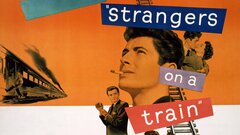
Strangers on a TrainStream
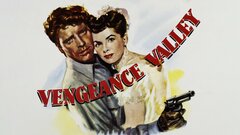
Vengeance ValleyStream

Tres Pretendientes

The Skipper Surprised His Wife
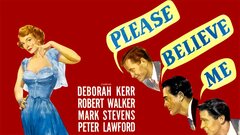
Please Believe Me
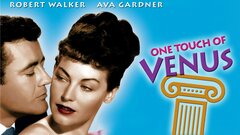
One Touch of VenusStream

Song of Love

The Beginning or the End
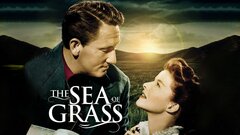
The Sea of GrassStream
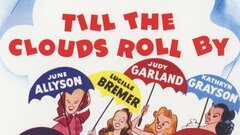
Till the Clouds Roll ByStream

The Clock

The Sailor Takes a Wife

What Next, Corporal Hargrove?

Her Highness and the Bellboy
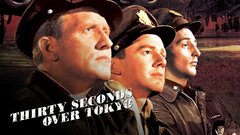
Thirty Seconds Over TokyoStream

See Here, Private Hargrove
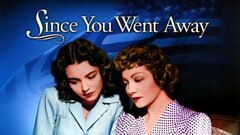
Since You Went Away
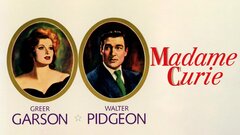
Madame CurieStream


































































































































































